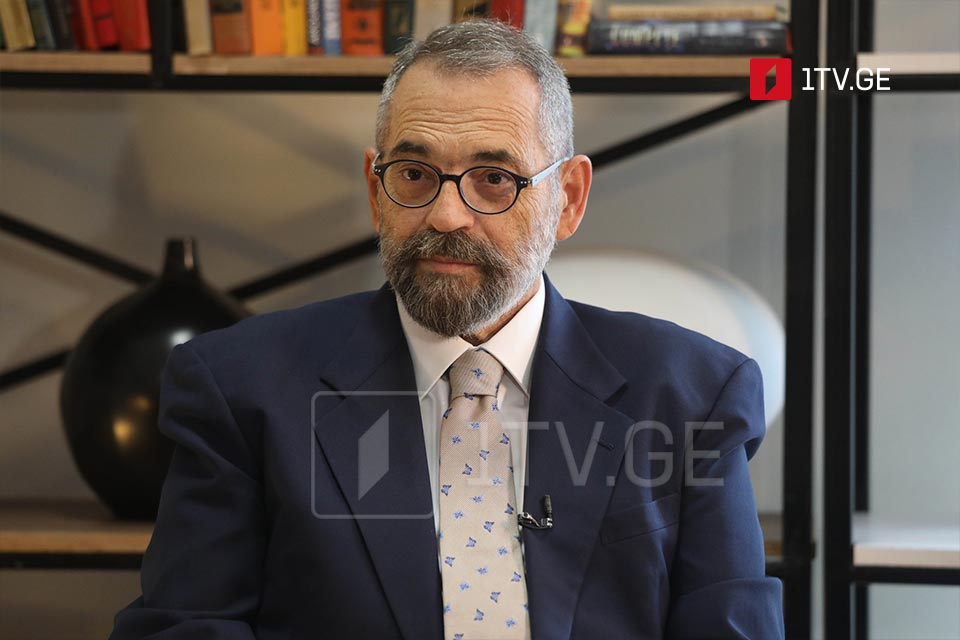EUMM Head of Mission Dimitrios Karabalis hosted a press conference, which marked the 15th anniversary of the EU Monitoring Mission in Georgia. Exactly 15 years ago, on 1 October, more than 200 EUMM monitors started patrolling in Georgia, following the August 2008 war.
“For a decade and a half, the EUMM has played a pivotal role in ensuring stability and reducing tensions in Georgia and wider region. Our presence over the past 15 years stands as a testament to the EUs long-term commitment to fostering peace and security,” said Mr. Karabalis during the press conference, which was well-attended by Georgian TV channels and media.
“The European Unions long-term commitment to peaceful conflict resolution in Georgia and the wider region was also clearly underscored by the EU High Representative for Foreign Affairs and Security Policy, Mr. Josep Borrell, who visited Georgia in September,” the Head of EUMM said during his presentation.
Mr. Karabalis presented to the journalists the work of EUMM – its achievements and remaining challenges within the four pillars of the Mission’s mandate: stabilisation, normalisation, confidence-building, and informing EU policy. He highlighted that since 2008, more than 86.000 patrols helped make Georgia more stable and safer for the local population.
“Nearly 600 days ago, Russia launched an unprovoked and unjustified full-scale invasion of Ukraine. Although the war has many implications on the security environment in Georgia, we have so far not observed any significant deterioration of the security situation along the Administrative Boundary Lines (ABLs). However, the situation remains fragile, and we should not take this relative stability for granted, as there is always some potential for adverse development. Things can change quickly as we have recently seen in neighbouring countries,” said Mr. Karabalis.
He highlighted how EUMM engages with people living along the ABLs. “Our monitors talk a lot with the local population. We listen to their worries, problems and fears – we try to understand their needs and help, whenever we can,” said Mr. Karabalis. He gave the example of how EUMM brings together irrigation experts from Tbilisi and Tskhinvali to help local farmers on both sides of the ABL water their fields, particularly during summer.
The Head of EUMM also described that many challenges, such as the restrictions of freedom of movement, unfortunately, persist. “Women, men, children, and the elderly living on both sides of the ABLs continue to suffer from fences, barbed wires, and ditches. The ongoing ‘borderisation’ has hindered their access to land and water, religious sites, deprived children of their chosen education, as well as buried dreams of many about a prosperous future. Families, neighbours, even entire villages remain separated,” said Mr. Karabalis.
At the end of the press conference, Mr. Karabalis repeated: “We remain dedicated to our mission of improving the lives and security of local communities. We will stay in Georgia as long as necessary.”
